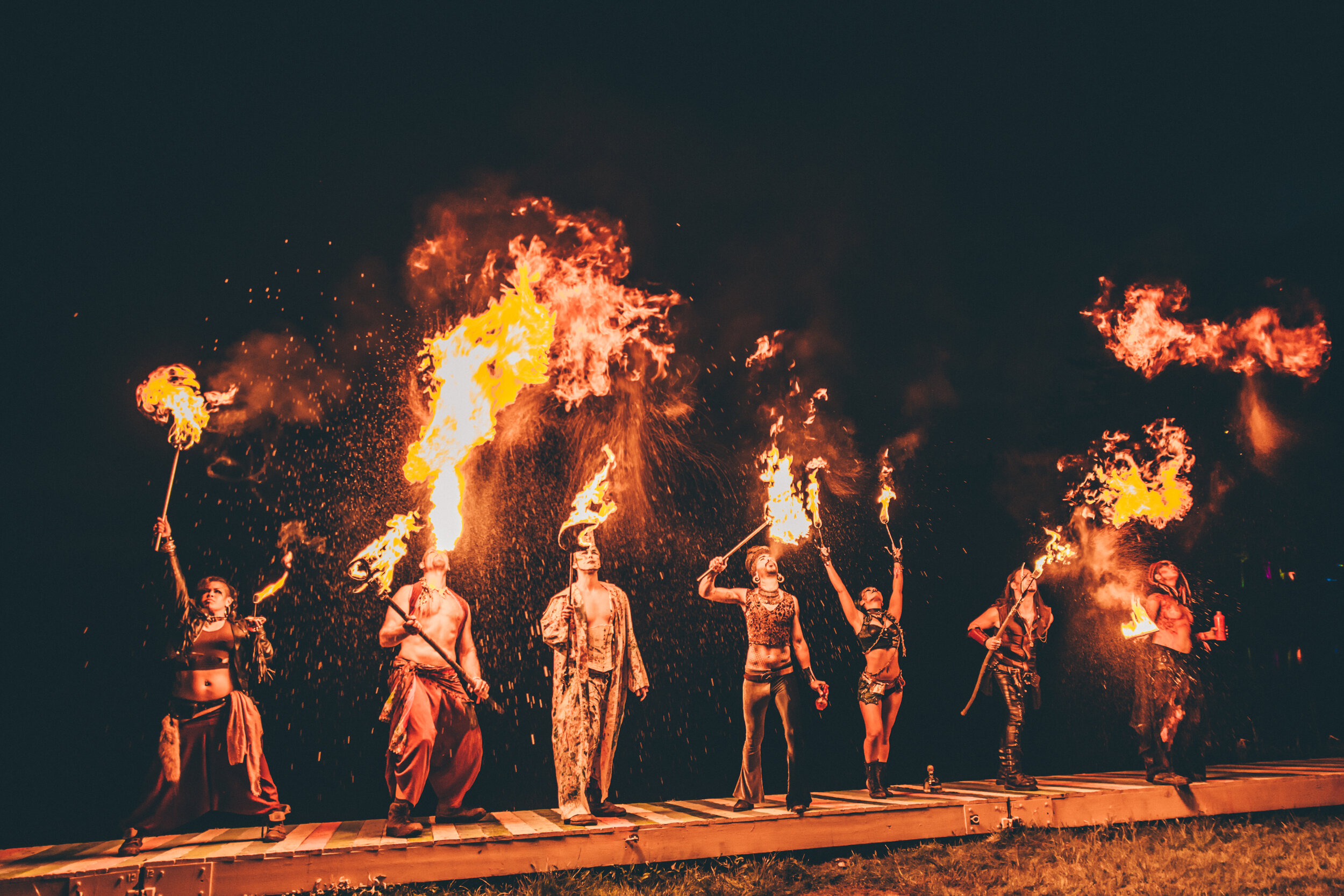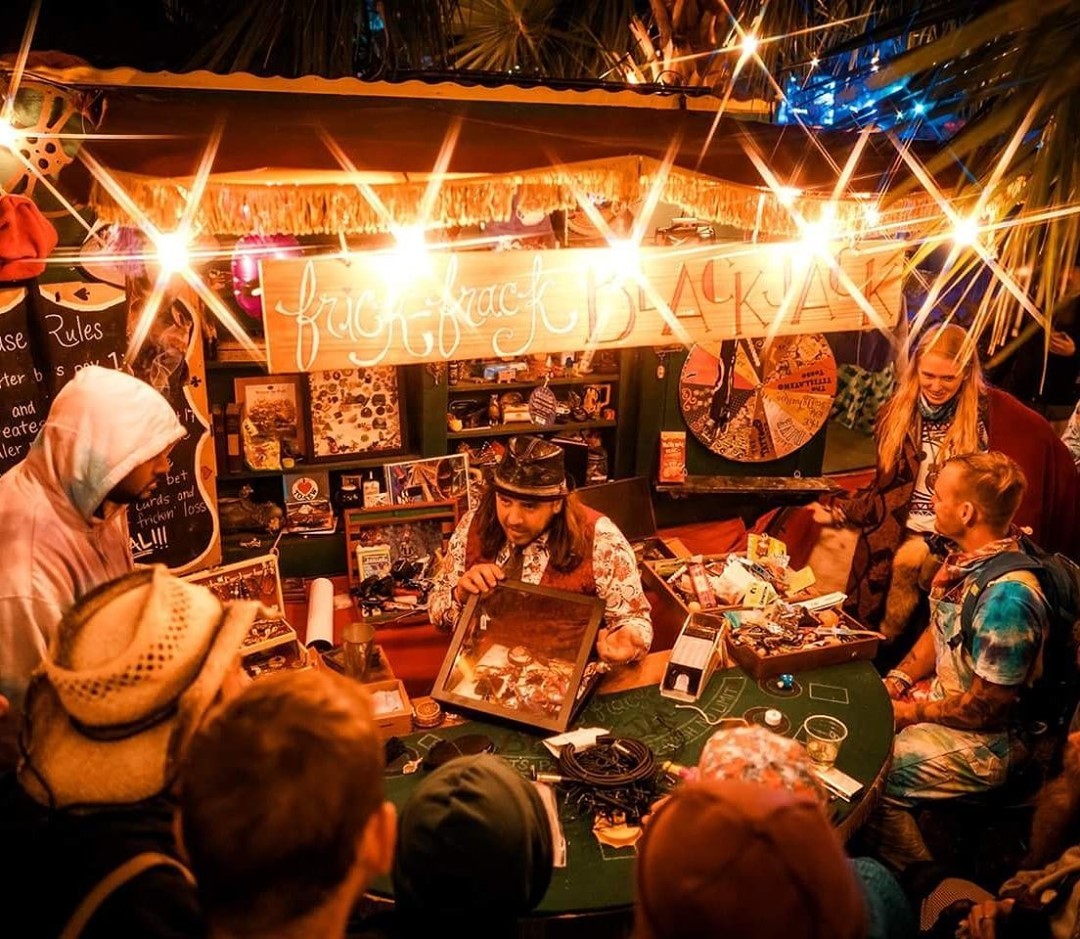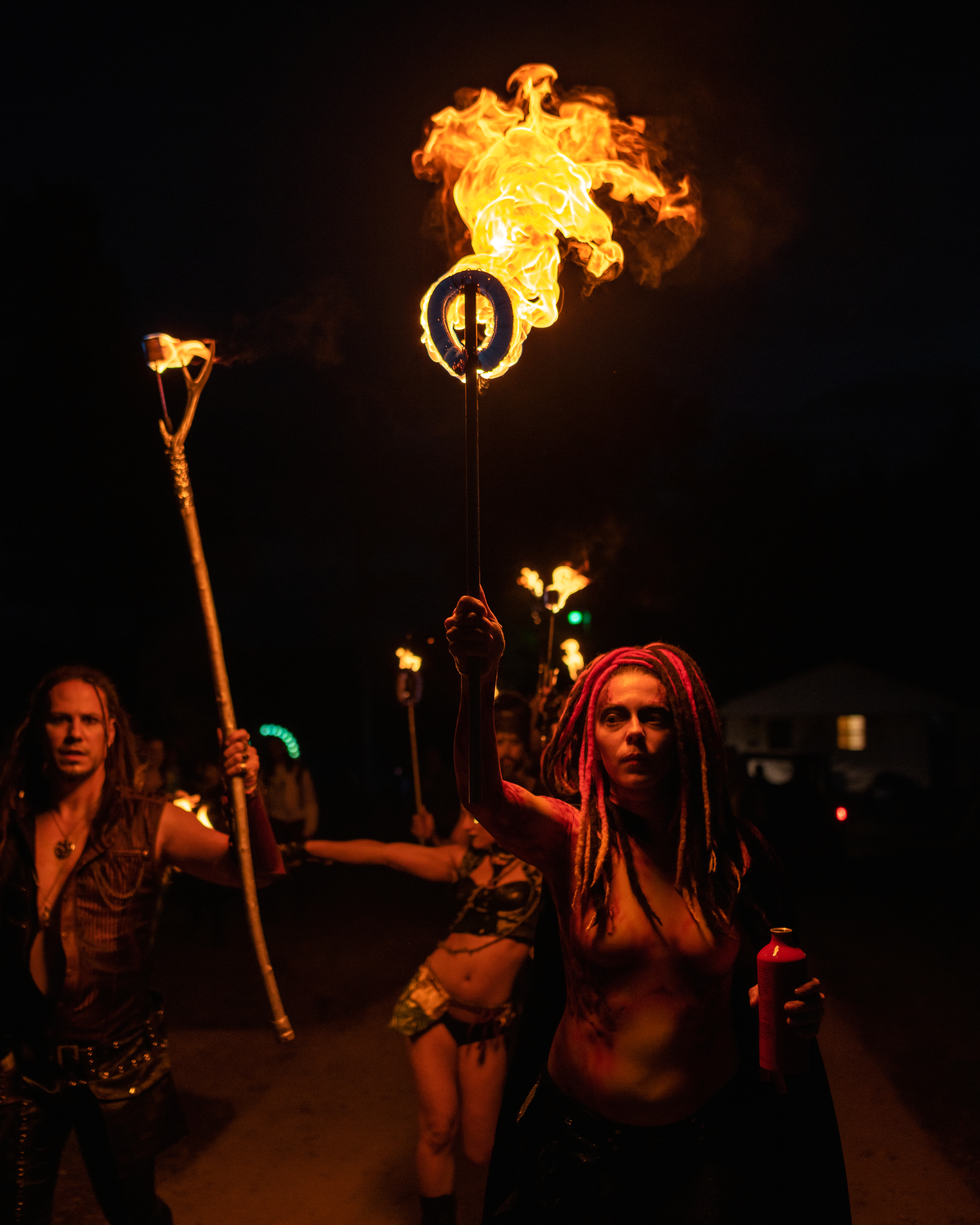
After being held captive inside our homes for over a year, it feels good to finally experience live music again. With the wave of music festivals at the top of the summer, came a new glimmer of hope, a twinkling of anticipation, and the chance to (finally!) quench our thirst for human interaction. Though the pandemic robbed us of the My Chemical Romance reunion tour we deserve and a Frank Ocean-adorned Coachella lineup, it hasn’t stopped music lovers and thrill-seekers from traversing the country for a delightful respite. With safety protocols put into place — mask mandates, proof of vaccination, and/or negative COVID test results, etc. — even larger-scale, longer-duration festivals have been able to return to the world.
This coming weekend, Elements Music & Arts Festival joins the ranks of resurrected, rescheduled multi-day fests. Its “sold out” status testifies to how eager folks are to have this beloved event punctuate their summers.
Imagine a world where idyllic natural settings, whimsical art, and boisterous bass cater to the music festival fantasy of your dreams. Where a wide variety of electronic music genres are comingled — all segmented by which natural element the music being featured aligns best with (earth, wind, fire, water, air). The very idea is less of a classic festival and more of what festival co-founder Brett Herman describes as “meaningful, magical happenings.”
Sounds like an epic Labor Day weekend, right?
To dive deeper into the history of Elements, the community it hopes to create, and the challenges of making a safe festival environment during a pandemic, I spoke with co-founders Brett Herman and Timothy Monkiewicz. Check out our convo below!

How many years has the festival been around? Tell me a bit about what the inspiration was to start this festival.
Brett: Elements was first started in 2013 as a New York waterfront festival. Then, in 2017, we reimagined Elements as a three-day camping festival. So, there’s been an evolution. I think the inspiration came from doing these large warehouse parties, which were starting to get larger and larger to the point of capacity – and that the festival format, with multiple stages of music, would give us a much greater range of expression, and room to create; and even more so once the festival became a three-day camping festival. Now you have a 72-hour canvas. And the possibilities are that much greater.
Timothy: I would also note that I think we’ve always wanted to do festivals from the start pretty much. That’s always been a dream. Neither of us came from money or brought a bunch of investors or anything. So, it’s really just about building up to it. We went from underground parties to 5,000-person warehouse parties, and we started doing outdoor events in New York that grew to 10,000. Then, we moved to the camping deck. It’s really just about saving up and building up experience that you need to know to do outdoor events, which is way more than I ever imagined, especially the camping festival. It’s been a long road, but finally, we’re here.
This feels like the first year it’s kind of more a real festival, you know, over 5,000 people, which is a really cool thing.
Brett: I think the one consistent thing has been pushing the envelope year over year. Each year has to be crazier, more interesting, more spectacular than the last. We’ve reinvested pretty much everything that comes out of Elements back into Elements. So, you see the growth from it year over year, especially this year. Now that it’s year four in this location, I think people are going to be blown away by the cumulative arts and energy it’s built up.
Going back to that whole underground and warehouse component, do you feel like that’s still kind of the vibe of the festival?
Timothy: We come from the Brooklyn underground scene – which it can be raunchy, it can be fun, it can be explicit, it can be a lot of different things. I think that’s something that we bring to the festival, in terms of, just a little bit more out there and a little bit more risqué. Where some other festivals are more middle of the road, we come from that kind of underground world where we have drag queens running around with people giving tattoos. It’s not that crazy, but just definitely a little bit more of the New York flavor than like a more middle-of-the-road festival. We have a lot of nooks and crannies you can explore and if you dig deeper, there are the main stages with big names like Diplo, but when you dig deeper, there’s some really cool flavor from Brooklyn underground. Everything’s really special.

What’s the process like in determining who the artists will be along with the art lineup?
Timothy: I guess the lineup for sure we find to be eclectic. We’re really trying to touch upon a lot of different genres and get some really tasteful stuff in there – from Bonobo to CloZee – really a mix, not trying to please every last person in the world, but we do like to have our different genres so that people can come and find cool stuff. And to be honest, a lot of festivals outside there, just do one genre which makes more sense because you can spend all the money on one huge headliner. But for us, we’re based around our community meeting people. There are a few big headliners, but then, a lot of these artists are locals or regionals and are up-and-coming. So, we’d like to promote them and give them good set times. Some people who have only played for 50 people are playing for 3,000, which is definitely a really cool thing.
Brett: Art is one of the areas that give us the most joy as well. This is so much more than a music festival – it’s a higher, immersive experience. Everywhere you look, the area is transformed. We try to be maximal. Whatever budget is leftover, we tend to keep saying yes in the art departments. Since we’re on the same weekend as Burning Man, we had a lot of incredible proposals and honorarium artists actually coming out that weren’t able to showcase their art at Burning Man this year. So, we’re extremely grateful that, that we’re able to showcase and give a platform to so many artists that have had pent-up creative energy throughout the pandemic.

Getting into that further, how do you find these visual artists? Do they send proposals, or do you have an open call?
Timothy: There’s a lot of it. I mean, it’s all over the place, we do open calls. Some people come to us, some people we follow on Instagram. We’ll see some dope stuff and be like, “Hey, do you want to try this?” It’s definitely a big process. It’s just a lot of work. A lot of artists are brilliant, but also might have some weird hang up. So you have to be very patient and very appreciative of what they’re doing. The end result is awesome.
Brett: If anybody out there has a crazy idea that they want to see in reality, feel free to hit us up. At the end of the day, this is about having a dream and turning it into a tangible experience. We’ve had some great journeys with unexpected folks along the way.

What do you both admire and love about Elements and what you bring to the festival circuit?
Timothy: I think one of my favorite things about the fest is the fact that we’re bringing communities together that don’t normally party or hang out together. A lot of times, there are different scenes in electronic music. There’s bass music and they all go to these venues, then the house music people who go to Tulum or Burning Man. Then, there are the tech-house people who go to different spots. With us, I think the coolest thing we’ve done is we have different areas; each stage has its own vibe. We make these beautiful pathways to each stage and the beautiful things that draw people to those. So many people are like, “Wow, I met these awesome people I never would have met! I ran across the Earth stage and I actually love this artist and I didn’t realize I liked this music because I was so boxed in with my one genre.”
So many people at festivals meet new friends for life. And I think we’re one of the best at that. We’re very open-minded. We do love all kinds of music and stuff. We just give people a really cool place to meet other people surrounded by art and cool stuff.
Brett: Where to begin? My favorite things at the festival were often the small experiences that you find along the way. It’s not always about the destination. It’s the journey. It’s the strange performance that you saw between two cabins or a solo art piece in the woods. I find that sometimes the smaller, simple things can really speak to you more. I hope as we grow, we can continue to create more of these meaningful, magical happenings throughout. The thing that brings me the greatest joy at this festival and other festivals is discovery. So, I hope that people will be discovering new musicians, new artists, and then really coming away with an expanded palate.
Burning Man and so many “transformational festivals” that are modeled after it have been accused of being stratified based on wealth or celebrity. How do you guys create community at a festival and make guests feel a sense of togetherness?
We think that every way we can invite people to become part of the process of creation is the way to do this. We want guests to feel that they are part of the experience, and we invite them to create art, create themed camps, do more than just attend, invent a costume, and be your best self. We’ve been inspired by New York, where we founded the company; and one thing that makes New York incredibly special is the diversity of people that you find interacting in nightlife – from Wall Street folks to drag queens to artists to you name it. It’s diverse across cultural and socioeconomic backgrounds and artistic tastes, in general, that really makes an excellent mix. You have to have all the elements, so to speak.
“All the elements” – I love it. What were the COVID challenges with rebooting the festival?
With our smaller events in 2020, we feel like we had a head start on preparing for the challenges of ’21 – dealing with constantly changing regulations, new scientific data, and new recommendations from scientific and medical professionals. In some ways, being in the pandemic longer made it easier, because several best practices had evolved since then. But we still are glued to the news, glued to the latest updates from the health and scientific communities as the safety of our guests is always paramount.
Excellent. What do you encourage newcomers to the festival to do to prepare? What attitudes and energy do you hope they have coming in?
We want newcomers to feel the same crazy zeal and electric energy that we felt going to underground and offbeat parties when we first arrived in New York. We want every aspect of the festival experience to feel like that; like you could strike sparks anywhere, in any direction, and that every person you talk to is going to an incredible new world to explore.
